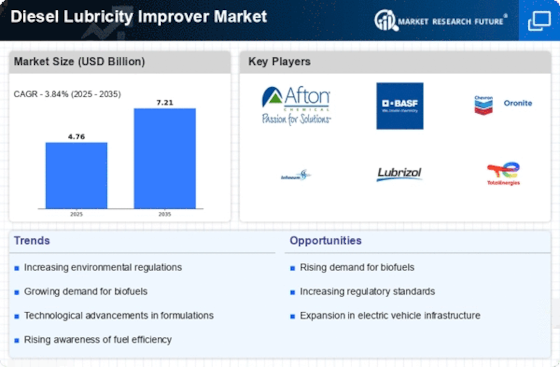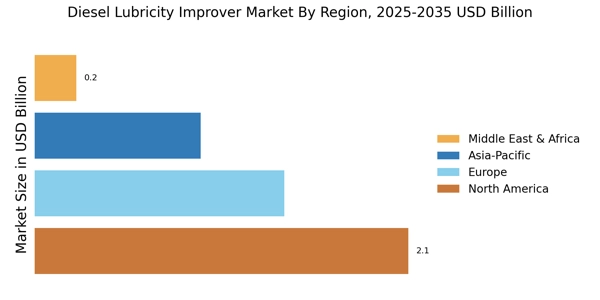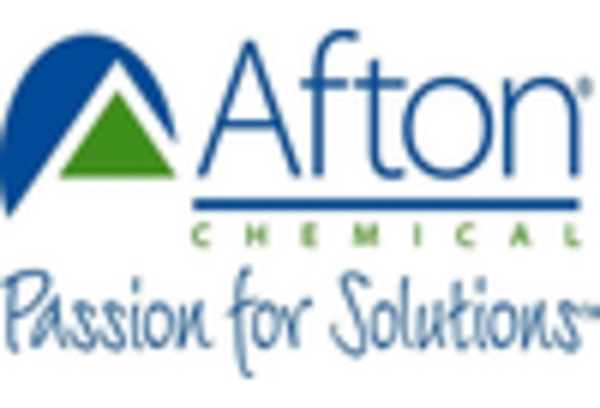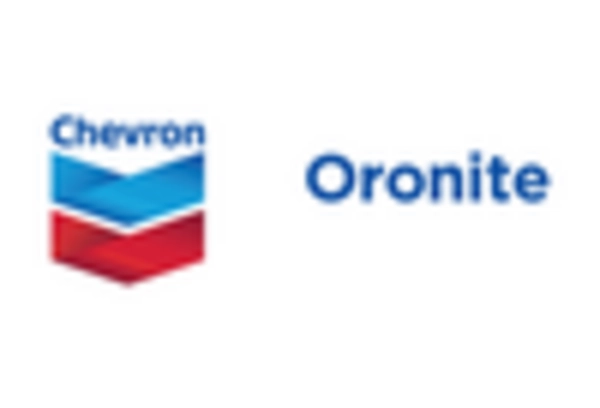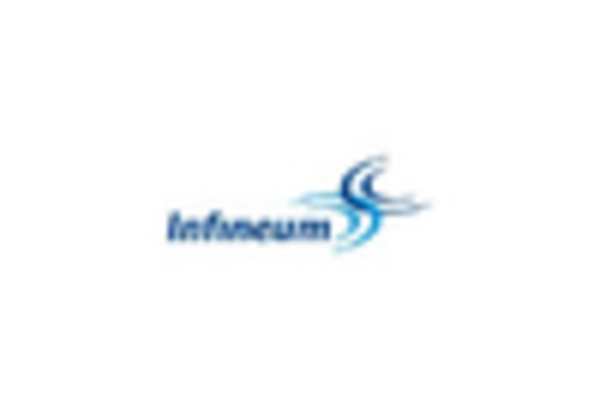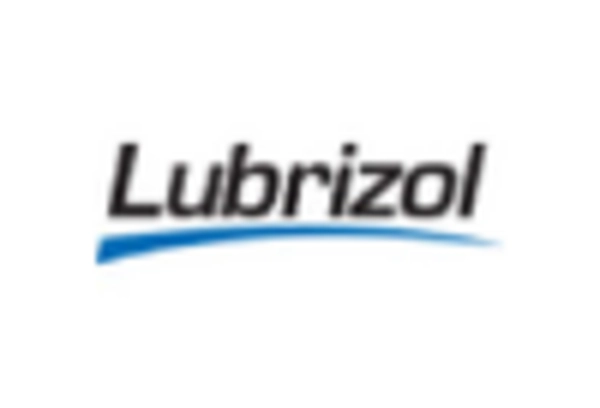Rising Environmental Concerns
Environmental concerns are significantly influencing the Diesel Lubricity Improver Market. As awareness of pollution and its effects on climate change increases, there is a growing push for cleaner fuels and additives. The industry is responding by developing lubricity improvers that not only enhance performance but also minimize environmental impact. This shift is evident in the increasing adoption of bio-based lubricity improvers, which are perceived as more sustainable alternatives. Market data suggests that the segment of bio-based additives within the Diesel Lubricity Improver Market is expected to expand, reflecting a broader trend towards sustainability in fuel formulations.
Regulatory Pressures and Standards
The Diesel Lubricity Improver Market is significantly shaped by regulatory pressures and standards aimed at improving fuel quality. Governments and regulatory bodies are implementing stringent guidelines to ensure that diesel fuels meet specific lubricity requirements. These regulations are designed to protect engine components and reduce emissions, thereby enhancing overall environmental performance. As a result, fuel manufacturers are increasingly incorporating lubricity improvers to comply with these standards. The market is projected to grow as companies invest in research and development to create innovative solutions that meet or exceed regulatory expectations, thereby driving the Diesel Lubricity Improver Market forward.
Increasing Demand for High-Performance Fuels
The Diesel Lubricity Improver Market is experiencing a notable surge in demand for high-performance fuels. This trend is largely driven by the automotive and transportation sectors, which are increasingly seeking fuels that enhance engine efficiency and reduce wear. As engines become more sophisticated, the need for lubricity improvers that can maintain optimal performance under various conditions becomes paramount. According to recent data, the demand for high-performance diesel fuels is projected to grow at a compound annual growth rate of approximately 4% over the next few years. This growth is likely to propel the Diesel Lubricity Improver Market, as manufacturers strive to meet the evolving needs of consumers and regulatory standards.
Technological Innovations in Additive Formulations
Technological innovations are playing a crucial role in the evolution of the Diesel Lubricity Improver Market. Advances in chemical formulations and additive technologies are enabling the development of more effective lubricity improvers that enhance fuel performance. These innovations not only improve lubricity but also contribute to better fuel economy and reduced emissions. The market is witnessing a trend towards the use of multifunctional additives that provide multiple benefits, such as corrosion protection and improved stability. As these technologies continue to evolve, they are likely to attract investment and drive growth within the Diesel Lubricity Improver Market.
Growth of the Automotive and Transportation Sectors
The growth of the automotive and transportation sectors is a key driver for the Diesel Lubricity Improver Market. As these sectors expand, the demand for diesel fuels that offer superior performance and protection against wear increases. This trend is particularly evident in regions experiencing rapid industrialization and urbanization, where transportation needs are escalating. Market analysis indicates that the transportation sector is expected to witness a robust growth rate, which will, in turn, boost the demand for lubricity improvers. Consequently, manufacturers are likely to focus on developing products that cater to the specific requirements of these growing sectors, thereby enhancing the Diesel Lubricity Improver Market.


